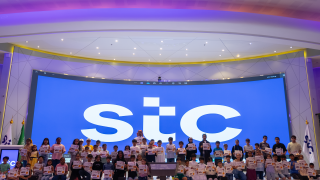The development comes amid the surprise revelation that Zayo’s $84-a-share offer, which emerged after a chance meeting between the chiefs of both companies at Capacity’s Metro Connect conference in February, trumped a bid from two private equity firms pitched at $78 a share that was within days of winning board approval. In a further startling disclosure, it also emerged last night that Zayo was blocked from making an offer when AboveNet’s chief executive, William LaPerch, first hired a Wall Street firm to try to find a buyer back in February 2011.
Filings lodged with the Securities and Exchange Commission, also reveal that AboveNet received expressions of interest from a barrage of potential buyers, including 10 separate private equity firms, an international manufacturer of fibre optic equipment, a cable company and four so-called “strategic” players from within the telco industry when it first hoisted the “For-Sale” sign last year. Analysts speculated last night that CenturyLink, Windstream, Level 3 and TW Telecom were likely to be among the possible trade buyers exploring a possible bid.
A consortium of three private equity firms eventually tabled an offer of $74 a share last June but the bid was rejected and the auction process shelved.
Two members of that consortium reopened talks this January, but in a further dramatic twist, one partner was forced to pull out at the eleventh hour after its investment committee failed to ratify the proposed offer price. A replacement from within the ranks of financial buyers who had expressed an interest in the company was quickly found and a bid finally tabled on January 10.
The filings show a fascinating insight into the unfolding drama at AboveNet’s headquarters in White Plains, New York, in the days following Capacity’s conference.
The documents also highlight Zayo’s early reluctance to include a go-shop period when it finally tabled an opening salvo of $80 a share on March 1 – a move that nearly cost Dan Caruso, the company’s highly accomplished playmaker, the entire deal. In a final flurry of horse-trading in mid-March, the private equity consortium raised its offer to $78.50 a share, but Caruso won the day after agreeing to pay $84 – a price that AboveNet had indicated would be enough to secure the board’s approval.
Analysts last night held out little hope of a further twist in the sales process: “It’s almost unheard of for a bidder to emerge once the go-shop period expires – the sheer amount of due diligence you would have to do from a standing start would put you at too much of a disadvantage to Zayo,” said one source with knowledge of the process. The source also noted that the break fee AboveNet would have to pay Zayo if a third party tabled an offer almost doubles to $75 million (equivalent to $2.85 a share) from $45 million following expiry of the go-shop period. “A rival bid would have to come in at about $90 a share to stand any chance of success,” the source says. “That’s a big ask given that we know the private equity contingent can’t get above $80 a share.”




